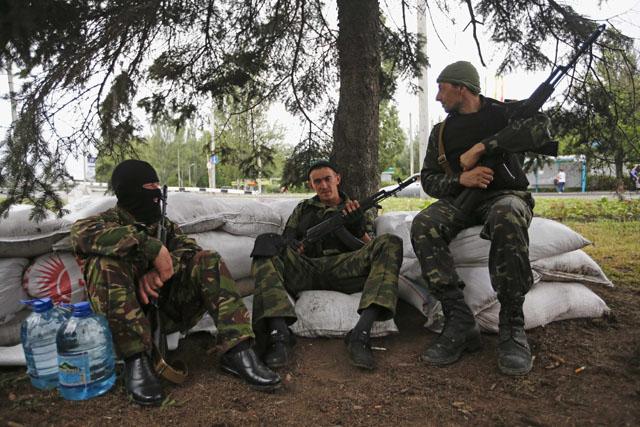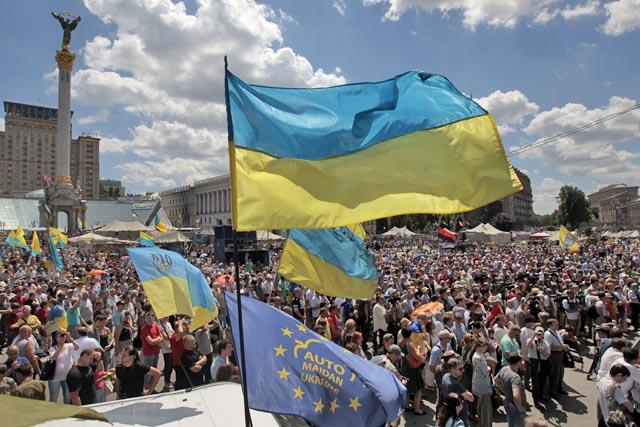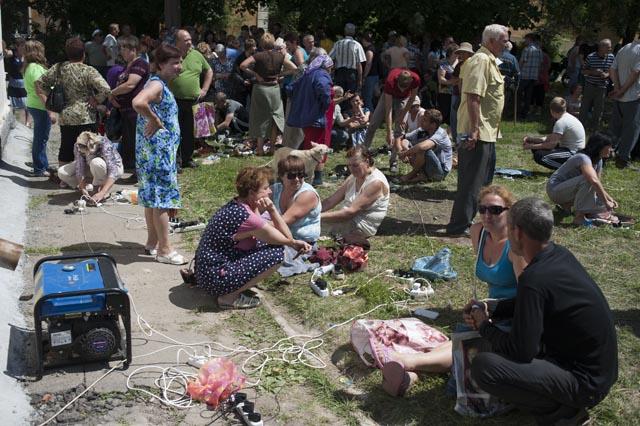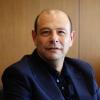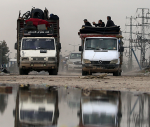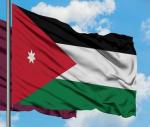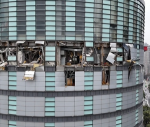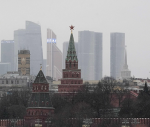You are here
Poroshenko assumes Herculean task of saving Ukraine
By AFP - Jun 08,2014 - Last updated at Jun 08,2014
KIEV — Ukraine’s new Western-backed President Petro Poroshenko got down on Sunday to the Herculean task of pacifying a deadly pro-Kremlin insurgency and averting a devastating Russian gas cut.
The 48-year-old candy magnate — dubbed the “chocolate king” — delivered a forceful inauguration address the day before in which he vowed to pursue Ukraine’s new pro-European course and never to accept Russia’s annexation of Crimea.
He flatly rejected dialogue with “gangsters and killers” who have declared independence in two heavily Russified eastern regions, and are waging a bloody campaign against Ukrainian forces that Kiev and the West accuse the Kremlin of choreographing.
Europe’s worst security crisis in decades has now plunged East-West relations into a Cold War-style stand-off, and left the ex-Soviet country of 46 million facing disintegration and economic collapse.
Daily battles in the economically vital region have killed more than 200 people since mid-April and continued unabated on Sunday.
A Ukrainian military source told AFP that gunmen had staged a series of unsuccessful raids late Saturday and early Sunday on an airport in the Russian-border city of Lugansk.
The source said Ukrainian forces suffered no casualties but could not say if any militants had been killed.
“It is the first time we have had an attack of this kind,” the soldier said by telephone.
The insurgents lost more than 40 fighters — most of them Russian nationals — while briefly seizing the main international hub in the neighbouring industrial city of Donetsk in late May.
Ukrainian media also reported intense fighting involving mortar fire and air assaults being waged in the region’s rebel stronghold of Slavyansk.
Yet the outlines of a possible solution to the crisis seemed in evidence on Friday when Russian President Vladimir Putin, nudged by German Chancellor Angela Merkel, held what he described as a brief but “very positive” meeting with Poroshenko during D-Day commemorations in France.
Putin appeared to respond to US pressure on Saturday by demanding extra protection of Russia’s western border in order to stem the flow of militants and weapons into Ukraine.
The seeming shift in Putin’s aggressive approach prompted Poroshenko to indicate he might receive a top Russian envoy for talks on Sunday.
Such direct discussions have been strongly promoted by both Merkel and US President Barack Obama but previously rejected by Putin.
“There can only... be real progress when there are direct, substantial talks between Moscow and Kiev,” German Foreign Minister Frank-Walter Steinmeier told Sunday’s edition of Berlin’s Tagesspiegel daily.
“That will be our message when [Polish Foreign Minister] Radoslaw Sikorski and I speak with the Russian Foreign Minister Sergei Lavrov in Saint Petersburg on Tuesday,” Steinmeier said.
But the Kremlin refused to confirm the meeting and no Moscow negotiator was known to have arrived in Kiev by Sunday evening.
Russian gas threat
Ukraine won a vital reprieve last week when Russia pushed back until Tuesday an ultimatum for Kiev to deliver billions of dollars in overdue payments or see its fuel supplies cut.
Two decades of economic mismanagement and several months of acute crisis have left Kiev struggling to meet its commitments. Its economy last year plunged into its second recession since 2009.
But Moscow demanded immediate payment after stripping Ukraine of price discounts it had awarded the ousted pro-Kremlin regime — a decision denounced by the new Kiev leaders as a form of “economic aggression”.
About 15 per cent of Europe’s gas from Russia transits through Ukraine and neighbouring countries are deeply concerned about a repeat of interruptions that took place in 2006 and 2009.
A top EU envoy is now urgently seeking a compromise that could save 18 member states from seeing their deliveries start dwindling this week.
The Russian energy ministry said the final round of EU-mediated talks will be held on Monday evening in Brussels.
Russia’s seizure of Crimea in March set off a wave of nationalistic fervour that saw Putin’s approval rating hit 80 per cent.
But the threat of further economic sanctions and a stampede by Western investors from Russia have also drawn questions about the long-term costs of Putin’s combative stance.
“With his Ukrainian escapade, Vladimir Putin embroiled the entire country in a reckless geopolitical game, making the Russian people hostage to his own ambitions,” former Russian prime minister and heavy Putin critic Mikhail Kasyanov wrote in a blog post.
“The game is over, and Putin’s primary job now is to minimise his political losses and save face.”
Recent studies conducted in Ukraine’s eastern rustbelt also show a majority opposing independence or an outright merger with Russia.
Poroshenko was the top vote-getter in both the Donetsk and Lugansk districts despite his vow to use force if necessary to keep Ukraine whole.
“As strange as it may seem, it is these very imperialistic ambitions of Putin that made the people of Ukraine start to increasingly demonstrate the unity of a hardened nation,” respected military analyst Valentyn Badrak wrote in Kiev’s Dzerkalo Tyzhnia weekly.
He added that Poroshenko’s promise to quickly crush the insurgency may only further weaken Putin’s hand.
“One theory says that the Kremlin leader’s compliance directly depends on Kiev’s military success,” Tyzhnia wrote.
Related Articles
Ukraine’s new pro-Western leader enters a defining week Sunday seeking to head off a Russian gas cut and secure US President Barack Obama’s backing with his country threatened by civil war.
The leaders of Germany and France warned Vladimir Putin on Sunday that Russia could be hit with punishing sanctions within days unless he forced Ukrainian rebels Moscow is accused of backing to suspend their deadly uprising.
Ukraine’s interior minister said on Saturday that most pro-Russian rebels and their top commander had fled their main eastern stronghold in what would be Kiev’s biggest success of the nearly three-month campaign.


